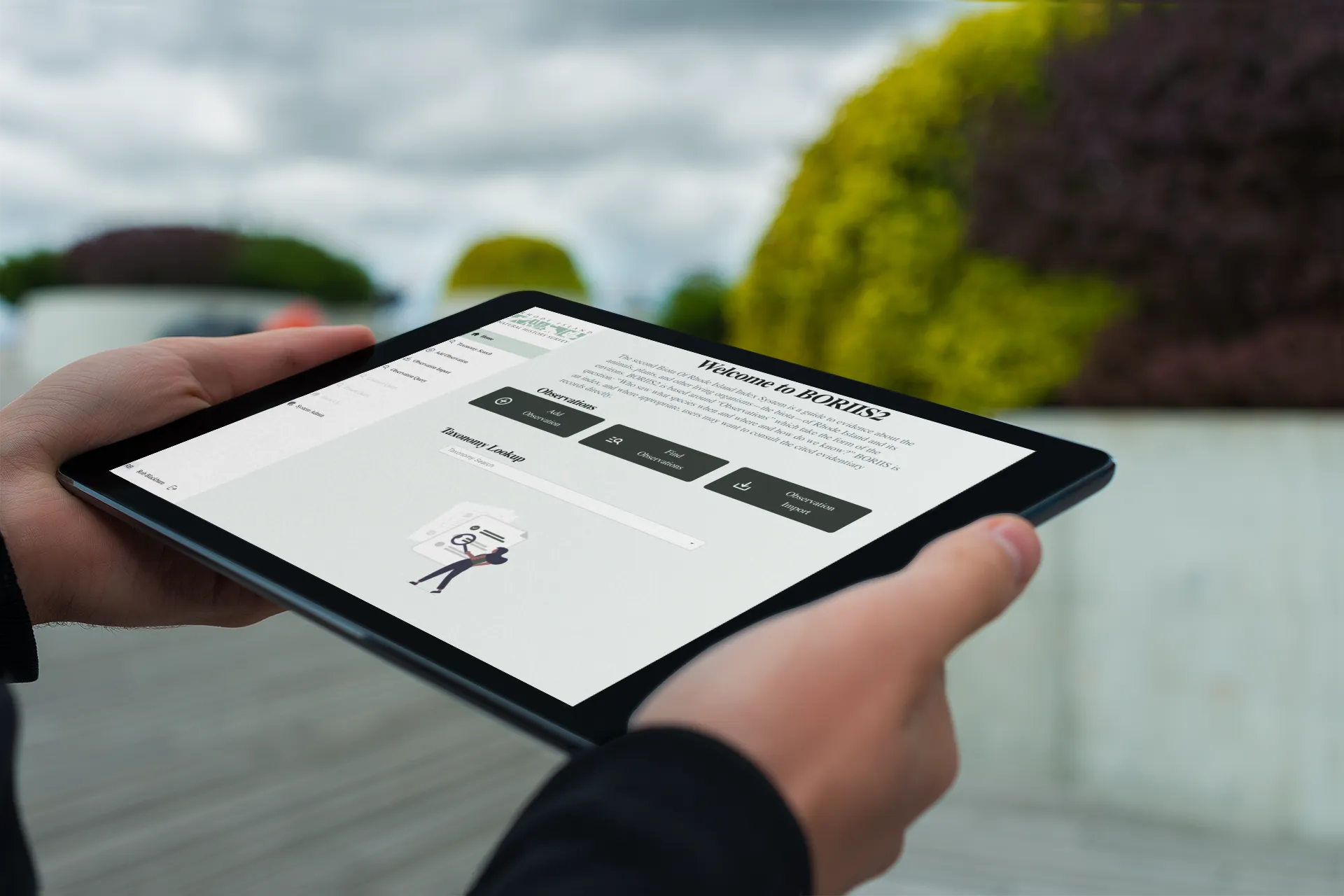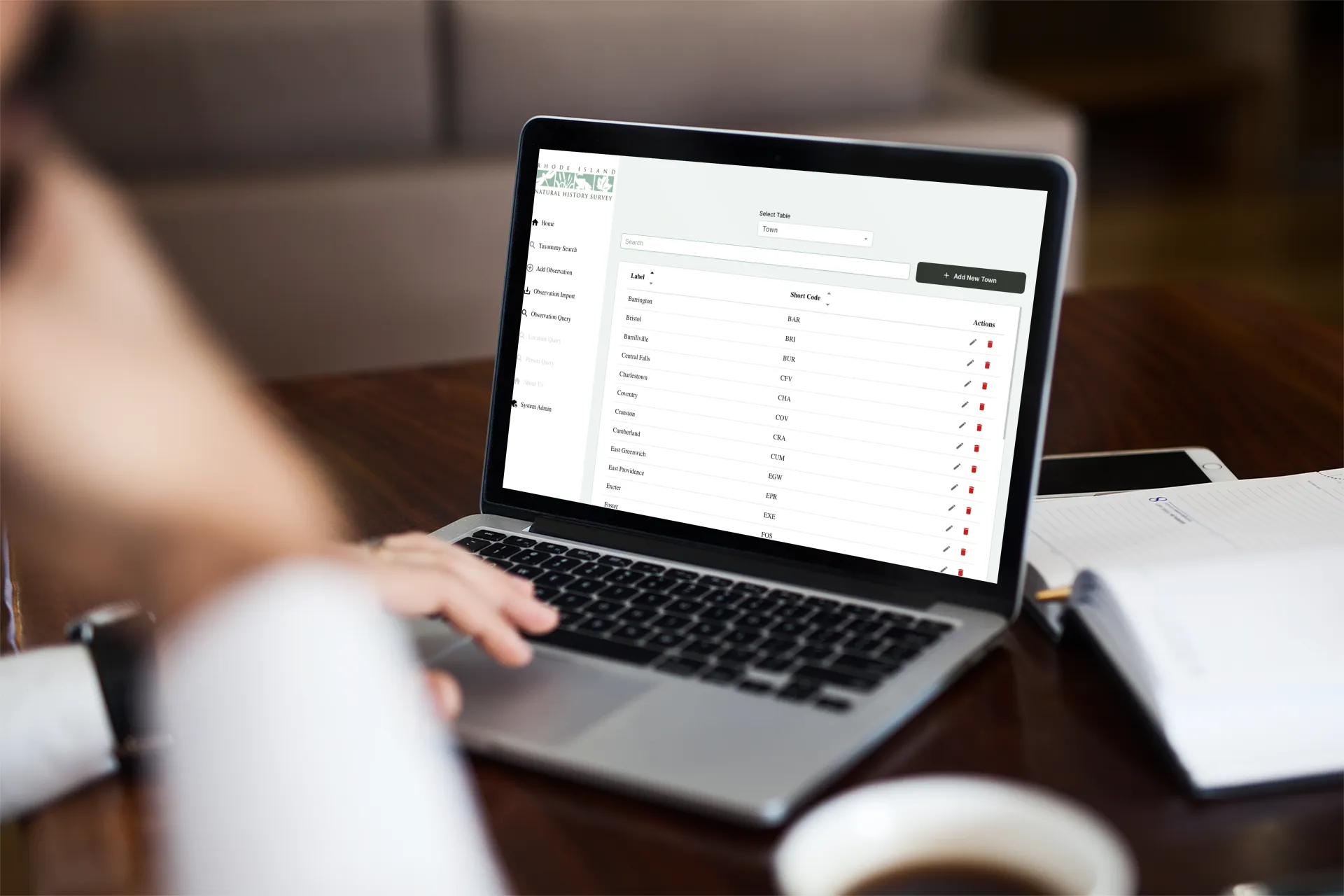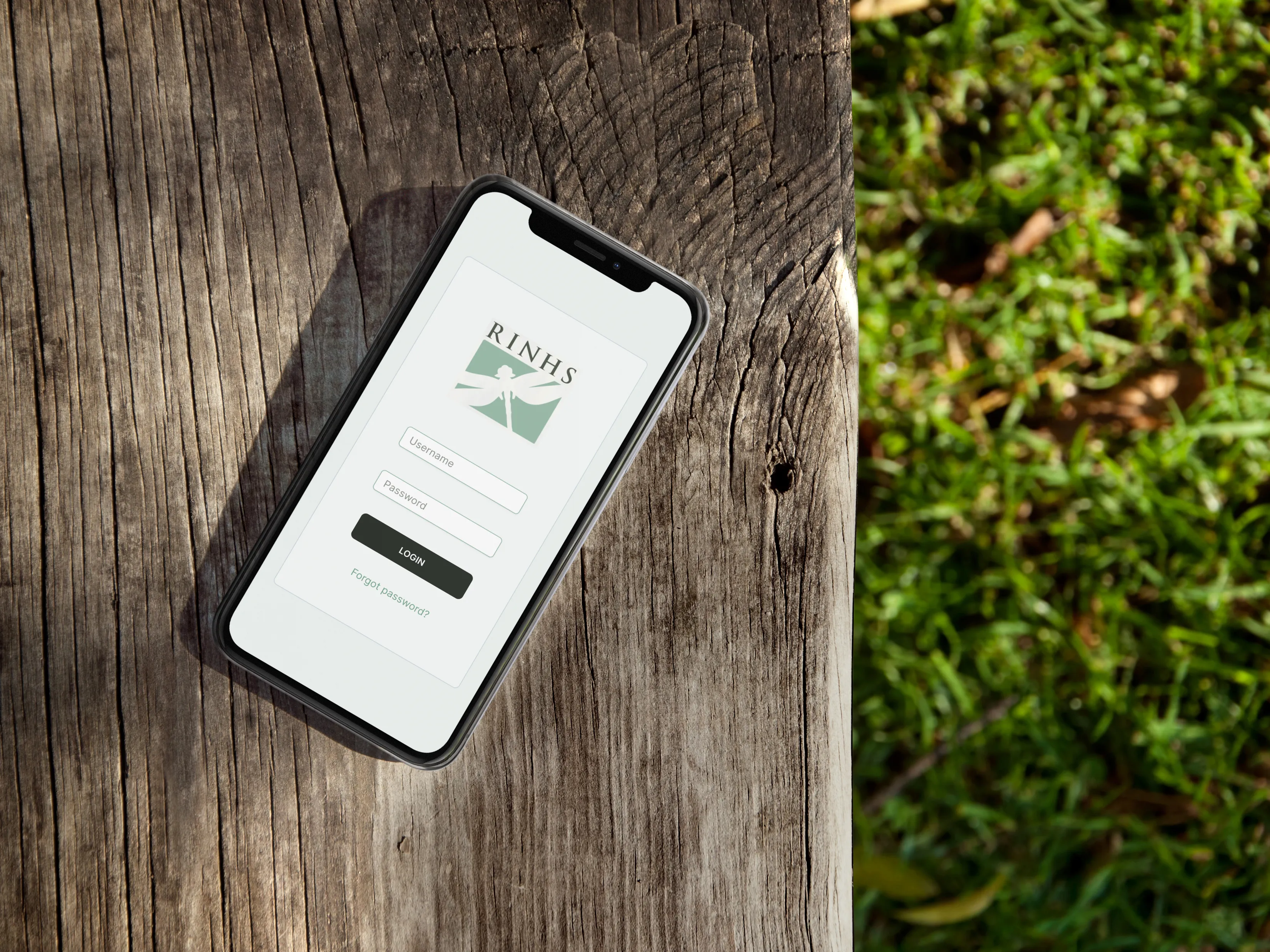0 +
Historical Records
> 0
Years of Data
0
Municipalities
Observation Management
Comprehensive tracking of species observations with detailed 'who, what, when, where' documentation
Evidence Integration
Link observations to supporting evidence including specimens, photographs, and literature sources
Advanced Search & Query
Powerful search builder with date ranges, location filters, and multi-criteria queries
CSV Bulk Import
Efficient data import with intelligent validation and error reporting for large datasets
Taxonomy Management
Hierarchical taxonomy system with autocomplete, synonyms, and standardized nomenclature
User Access Control
Secure authentication with role-based permissions and activity tracking for QAQC
Preserving Rhode Island’s Natural Heritage Through Data
The Rhode Island Natural History Survey, a member-supported nonprofit founded in 1994 to promote ecosystem resilience and foster public involvement in environmental science, needed a modern system to catalog, manage, and analyze biodiversity observations across the state. BORIIS2 (Biota of Rhode Island Index System) serves as a centralized repository for tracking Rhode Island’s flora, fauna, and natural communities, providing a critical tool for conservation management, ecological research, and environmental decision-making.
The Challenge
Rhode Island’s biodiversity data was scattered across multiple legacy systems, outdated Microsoft Access databases, and various paper records. The original BORIIS1 system, built in 2004, had served its purpose but lacked modern capabilities for collaboration, data quality control, and scalability. Conservation managers, researchers, and environmental professionals needed a unified system that could:
- Consolidate over 110,000 historical observation records from disparate sources
- Support multiple users entering and accessing data simultaneously
- Maintain rigorous data quality standards while remaining accessible to non-technical users
- Protect sensitive information about rare species locations
- Enable sophisticated queries to answer complex ecological questions
- Integrate with regional and national biodiversity data networks
Without a modern, centralized system, critical biodiversity information remained siloed, making it difficult to track species trends, support conservation planning, and respond to environmental management needs across the state.
The Solution
Blackburn Labs partnered with the Rhode Island Natural History Survey to design and develop BORIIS2, a modern web-based biodiversity database that transforms how Rhode Island manages its natural heritage data.
Intelligent Data Architecture
Built on a robust relational database foundation, BORIIS2 centers around the concept of “observations”—each representing a documented instance of a species in a specific place and time. The system intelligently links these observations to supporting evidence, whether specimens in museum collections, published literature, photographs, or field notes. This architecture ensures that every data point is traceable and verifiable.
User-Centered Design
The interface guides users through data entry with autocomplete suggestions, dynamic searches, and contextual forms that adapt based on the type of information being entered. Quality assurance is built into every interaction, reducing errors and maintaining data integrity without requiring database expertise from users.
Flexible Evidence Management
BORIIS2 accommodates the diverse nature of biodiversity documentation. A single observation might be supported by multiple pieces of evidence—a specimen voucher, a photograph, and a published paper. The system tracks all these connections while maintaining detailed metadata about each source, including repository information, publication details, and digital file locations.
Advanced Query Capabilities
Researchers and conservation managers can construct complex searches using the intuitive query builder. Questions like “Which rare species have been observed at Alewife Brook Preserve in the last 25 years?” or “Is the Red-eyed Vireo declining based on recent observations?” can be answered efficiently through flexible date ranges, location filters, and taxonomic searches.
Results & Impact
BORIIS2 has transformed biodiversity data management for Rhode Island, providing conservation professionals, researchers, and environmental managers with unprecedented access to the state’s natural history information.
The platform has achieved significant milestones:
- 110,000+ historical records successfully migrated from legacy systems
- Statewide coverage across all 39 Rhode Island municipalities
- Enhanced data quality through built-in validation and standardized formats
- Conservation support for rare species management and environmental assessments
- Regional connectivity with data standards aligned to NatureServe and GBIF
Foundation for Growth
BORIIS2 represents Phase 1 of Rhode Island’s biodiversity data infrastructure modernization. The roadmap includes:
- Public Web Portal: Enabling citizens to explore species observations in their communities
- Advanced Mapping: Interactive spatial analysis tools for conservation planning
- Citizen Science Integration: Direct data submission capabilities for community naturalists
- Regional Connectivity: Enhanced data exchange with neighboring states and tribal entities
- Mobile Access: Field data collection through mobile-optimized interfaces
The system provides a scalable foundation that will support Rhode Island’s conservation needs for decades to come, facilitating collaboration between the Natural History Survey, state agencies, conservation organizations, and the research community.


David W. Gregg, Ph.D.
Executive Director, Rhode Island Natural History Survey
"In our original vision for this product, we were uncertain how to achieve certain functionalities, and Blackburn was able to leverage their broad experience to lead us through the refinement process and find elegant solutions they could adapt to meet our needs. At the same time they were relaxed and easy to work with and not at all off-putting in the way technical experts can sometimes be. We also appreciate how Blackburn's team was responsive to the ebb and flow of our own team's schedule."
Getting Started
Ready to bring your software or app idea to life?
Contact us today to schedule a consultation and discover how Blackburn Labs can help you achieve your digital transformation goals.





